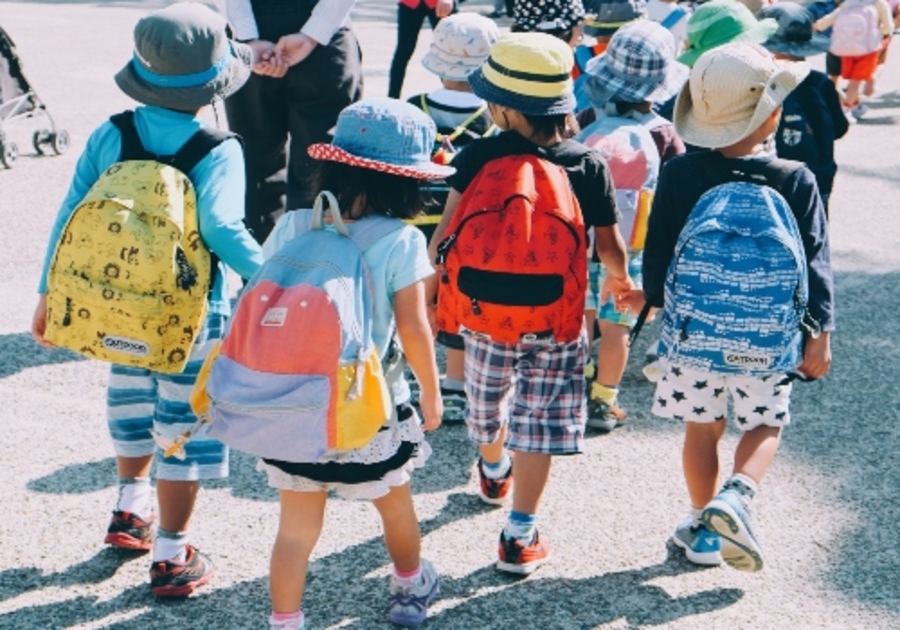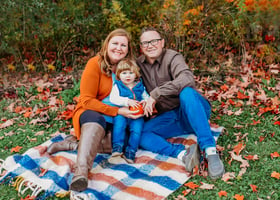As a parent, you are your child's most important teacher. From the day your child was born, you have laid the foundation for your child to grow, learn and prepare for school and later learning, all throughout their lives!
As a speech language pathologist, I understand the value of language in a child's academic journey. But as a parent of three wonderful girls, I whole-heartily share the same concern every single parent has: Will my child be ready for school? Will he make friends? Will she know who to go to when she is hurt?
Whether you are the easy-going parent type or "that mom who follows the school bus to school” type (not that I would know anything about this personally!), when the first day of school suddenly arrives, we all wonder how our little one will fair off. As parents, we all want our children to succeed, especially at school. Today, we will talk and share about what we can do at home to get our child ready for kindergarten.
SPOILER ALERT! You are already doing it! Rock on parents!
"Ready for school": what does it mean anyway?
Many skills contribute to a smooth transition to school and academic learning. Language and literacy are strong predictors of a child's later success at school. According to research, children with strong language skills do better at school. Strong language skills, in any language,make it easier for children to learn at school. Yet, being "ready for school" involves much more than words and sentences.
Other skills help a child be successful in his interactions and learning at school. Cognitive, sensory, social, motor,as well as many other discrete skills, play a role. All these skills have developed over the course of the last few years at home, in the daycare, in the park – thanks to you, your family, and your environment.
Research shows that children "ready for school"share similar skills.Children who do better at school:
- Understand the social rules of interaction in different environments. In different environments, we have different rules! Children need to adapt their behaviors accordingly. For example, while running is allowed at home, it is not allowed on the pool deck or in the school hallway.
- Get along with other peers and collaborate with others (to build a fort, to get to the bus on time, etc.).When conflicts arise, they can sort it out through language or with the help of an adult.
- Listen and follow directions. Most of the time - we are dealing with kids, right?.This also involves the ability to follow safety rules even if they really,really want to do something else.
- Use language in daily routines to share feelings, make choices, request a toy or an action, explain an event,retell a story, and hold conversations.
- Have positive experiences with books and literacy, most likely from an early age.
- Have received various cognitive, sensory, physical experiences in environments promoting learning and independence.
How do I help my children to be "ready to school"?
Parents can do many things to help their children get ready to learn. Here are some of the strategies to get your child ready for school
- Talk with your child all day, every day in daily routines and activities to help them learn and understand new words.
- Connect with your child face-to-face when you talk, play, sing, and read books. Take turns talking and playing and with your child.
- Put predictable routines in place to help your child feel safe, understand the next steps, self-regulate, and learn how to start and finish a task.
- Read to your child every day. Point out words in books. Run your finger under words while you read to your child. Share stories with your child
- Unplug - turn off the tv, tablet or phone - and tune into your child. Real-life experiences with people, not screens, help your child learn and understand.
Spending time and doing activities together while talking through it all is all you need to get your child ready for school. Tune in next week for more great ways on how you can help your child get ready for school through language and literacy.
Want to know more about speech and language development? Visit the First Words website.
Concerned about your child' communication development? Complete our online screening tool or call the Ottawa Public Health Information Line at (613) 580-6744.
Remember. Early intervention is the best approach!



